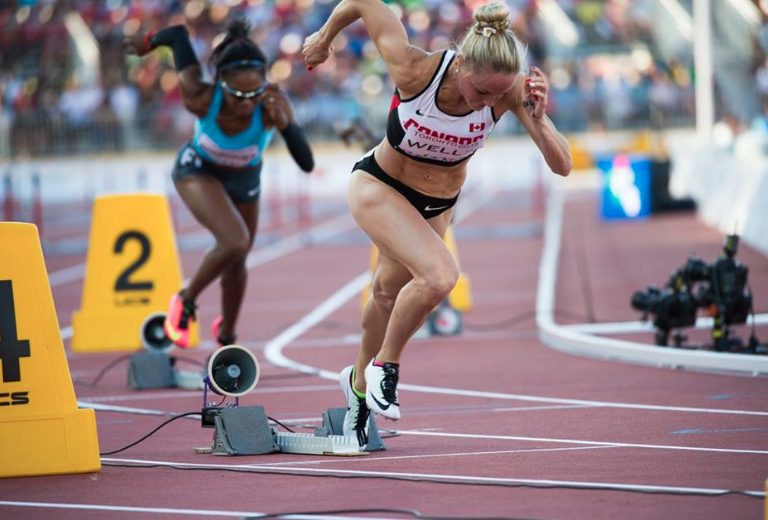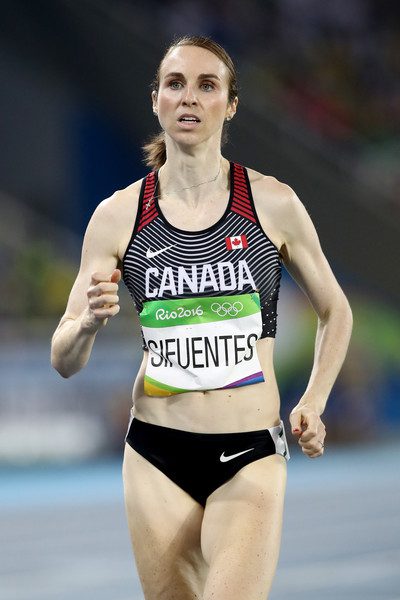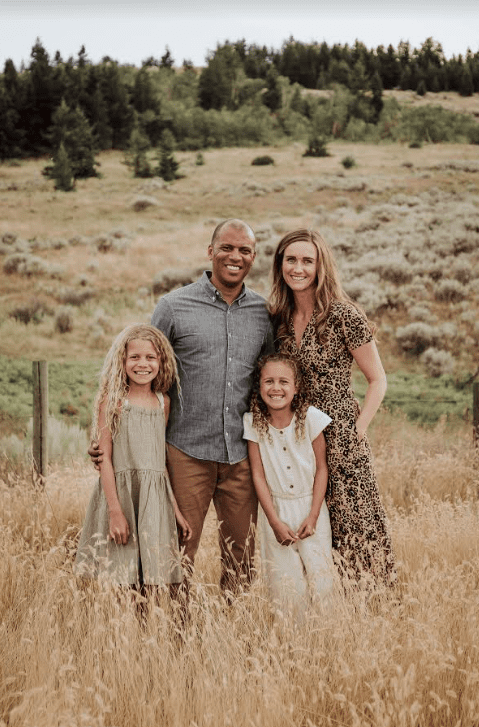How pro athletes move on from sport
Canadian Olympians Sarah Wells, Gary Reed and Nicole Sifuentes offer their advice for athletes facing retirement

When we see professional athletes competing on the world stage, whether it’s at the Olympics or another international event, we are witnessing the culmination of years of hard work, dedication and sacrifice. Many of these athletes began training when they were in high school or earlier, and their entire lives have been spent focusing on their sports. But what happens when it’s time to retire? For the most part, athletes retire at a young enough age that they have time for a whole new career, but making this transition can be challenging. We spoke with Olympic 400m hurdler Sarah Wells, 800m Olympian Gary Reed and Olympic middle-distance runner Nicole Sifuentes — all former professional Canadian athletes — to get their advice on how to move on from sport.

RELATED: Kilian Jornet almost retires from running, gives away shoes for charity instead
Canadian Running: When did you know that it was time to retire from competitive running?
Wells: When I started to make choices that were no longer in line with high-performance sport. I was saying I wanted to be in the sport and still wanted to race, but I was being asked to do speaking engagements and getting on planes and trains and flying here, there and everywhere. I specifically remember doing a workout in an airport parking lot one day to try to squeeze it in, then went to a speaking engagement, flew the red-eye flight back, got on the track the next day and did not have a good workout. And so when I was making choices that were no longer in line with the goal I was saying out loud, inside I knew that my heart was no longer in it.
Reed: I had always said to myself that if I stood on a start line and did not care about the result then I would immediately retire, as I would know that my desire to be the best in the world was gone. Once that desire was gone I knew it was time to hang them up.
Sifuentes: I was consistently frustrated with my performances toward the end of my career. I did not feel that I was taking steps forward any more, and was dissatisfied with the outcomes of my races. I also was tired of the frequent travel. Specifically, when I thought about the next obvious big goal for me at the time, it would have been the world championships in Doha. I realized that I had absolutely no desire to go there to compete.

CR: What was the transition away from competitive athletics like?
Wells: It’s a big part of your life for so long, and I know that I miss that feeling after a super-hard workout when you crush it, and you know, tangibly, that that you’ve improved that day – there’s not a lot of things that you can see milliseconds worth of improvement. And then I’m sad I’ll never be that fit again. The Ninja Turtle status you feel you have as an athlete – I’m not sure I’ll ever be that good again.
Reed: For me, personally, it’s been just awesome. I was never a big fan of having my identity caught up as only an athlete. This allowed me to have a great balance with my friends and family over my years of competing and truly understand that, win or lose, my relationships would always thrive. Once I retired, I simply found a new passion and starting chasing it in the same way I did with my athletics. I got married to an amazing girl, we had two awesome girls and do the simple things in life.
Sifuentes: There were few challenges for me. It was mainly very positive. I continued to meet my training partners for training runs and workouts, and realized I could maintain a very high level of running ability off less than half the training load I used to carry. I had no aches and pains normally associated with running, because my training was reduced so much. The biggest challenge for me was accepting that many of my goals and dreams were not going to happen.
https://www.instagram.com/p/CKC2-S2HBX-/?utm_source=ig_web_copy_link
CR: What have you been up to since then?
Wells: I founded and launched the Believe Initiative, which is an organization that teaches young people resilience and self-belief, and we’ve impacted over 120,000 students all across North America. The program helps students learn leadership skills, then take those skills and apply them to a Believe Impact Project, where they connect a passion they have and a problem they want to solve, they use that passion to solve that problem and they build self-belief through action.
Editor’s note: The Believe Impact is currently looking for high school students to join the program. For more information, visit believeinititative.com.
Reed: I went to UBC Sauder School of Business after I retired, then started selling real estate in the Vancouver market. We had five great years there, and then decided to move back to Kamloops, where I grew up. I took a job in-house at A&T Project developments (a construction and development company in Kamloops) as a sales and marketing manager and worked my way up until I became a partner with the company in 2016. Recently I have taken on a new role as our VP of Development.
Sifuentes: I began coaching individuals at the end of my pro career in 2018, and in 2019 (after officially retiring) I started my coaching business Sifuentes Coaching & Consulting. Since then, I’ve been busy working to build my business and help people train smart, run PBs and reach their goals.
https://www.instagram.com/p/CLaF1B_jBzb/?utm_source=ig_web_copy_link
CR: What advice do you have for athletes who are nearing retirement or who have already retired and are feeling lost?
Wells: Seek mentorship and try new things. We haven’t had an opportunity to explore all our interests or redefine ourselves in so many different ways, so as you’re nearing the end of sport or you’re already retired, just go and experience new things.
Reed: Keep looking forward. Many athletes I know who have struggled have spent years trying to find a new passion that will fill the void left by sport. Don’t try and fill the void because you simply can’t do it – it’s impossible to replicate the highs of Olympic-level sport. Just focus on creating a new path and accept that the journey will look very different than the last one, but it will still be awesome.
Sifuentes: For those considering retirement but are unsure, speak to a qualified counsellor or therapist. In addition, I will say it was great to have a plan. I already knew I wanted to start my own coaching business and was able to turn my focus toward that right away. If possible, spend some time leading up to retirement considering what you may want to do next. Try to establish a direction or at least a couple of options to pursue.
I hear people referring to their athletic careers as the glory days, or the best days of their lives. I think this is sad, because there’s a lot of life left after retirement. There’s no reason why life can’t be just as great or even better after retirement. I am happier now than I was during my pro running career and I never, ever regret retiring. I was fortunate to be able to decide on my retirement and walk away without being forced into it. I recognize that my situation makes the transition easier. But even for those who don’t have that choice and have to retire due to injury, finances, or life circumstances, it is still important to believe that the future has even better things in store, even if they aren’t clear yet.
RELATED: What does transitioning out of professional running look like?


